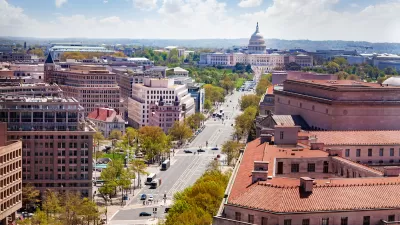The recently released U.S. States Open Data Census discovered that the overwhelming majority of states have a lot of work to do in opening their data to the public.
Sarah Schacht shares insights into the recently completed U.S. States Open Data Census, which "benchmarked states' efforts while enlisting an open assessment process to encourage improvement." U.S. Open Data launched the census early in 2015, concluding in February 2016. During the process, states were allowed "to improve their results as the census looked into their open data initiatives."
Schacht interviewed Waldo Jaquith, U.S. Open Data's executive director, for the article, to get his insight both into the creation of the census as well as the results. Jaquith describes the process as overwhelmingly depressing, due to the lack of transparency and territorialism encountered during the process. Two states, however, stick out in Jaquith as exemplary in their treatment of open data and the census process: Connecticut and Washington.
The article also includes insight from Tyler Kleykamp, chief data officer for Connecticut, and Will Saunders, open data program manager for Washington.
To get an idea of how states' efforts compare to the open data work of cities, check out the U.S. City Open Data Census.
FULL STORY: Open Data Census Provides a To-Do List for States

Alabama: Trump Terminates Settlements for Black Communities Harmed By Raw Sewage
Trump deemed the landmark civil rights agreement “illegal DEI and environmental justice policy.”

Study: Maui’s Plan to Convert Vacation Rentals to Long-Term Housing Could Cause Nearly $1 Billion Economic Loss
The plan would reduce visitor accommodation by 25% resulting in 1,900 jobs lost.

Planetizen Federal Action Tracker
A weekly monitor of how Trump’s orders and actions are impacting planners and planning in America.

Wind Energy on the Rise Despite Federal Policy Reversal
The Trump administration is revoking federal support for renewable energy, but demand for new projects continues unabated.

Passengers Flock to Caltrain After Electrification
The new electric trains are running faster and more reliably, leading to strong ridership growth on the Bay Area rail system.

Texas Churches Rally Behind ‘Yes in God’s Back Yard’ Legislation
Religious leaders want the state to reduce zoning regulations to streamline leasing church-owned land to housing developers.
Urban Design for Planners 1: Software Tools
This six-course series explores essential urban design concepts using open source software and equips planners with the tools they need to participate fully in the urban design process.
Planning for Universal Design
Learn the tools for implementing Universal Design in planning regulations.
Caltrans
Smith Gee Studio
Institute for Housing and Urban Development Studies (IHS)
City of Grandview
Harvard GSD Executive Education
Toledo-Lucas County Plan Commissions
Salt Lake City
NYU Wagner Graduate School of Public Service





























